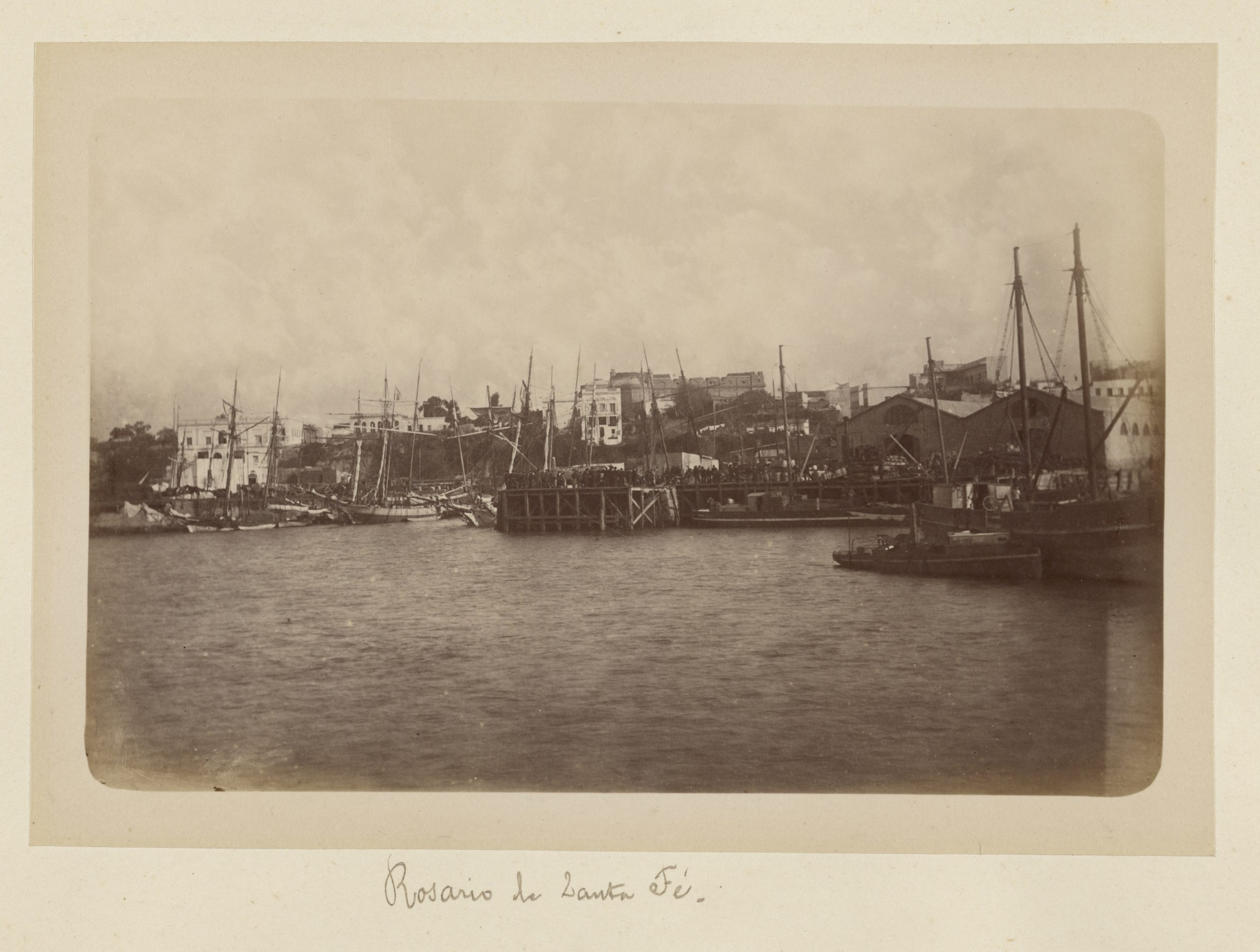58
Rosario de Santa Fé[1]
– a very holy name but not a very holy place.
6th Nov. 1892 Sunday.
My dear Mother,
I came here on Friday, travelling previous night by “sleeper” from Buenos Aires, wither I intended to return to-morrow night. B. Aires is waking up again from its torpor (I’m not sure abt. that word torpor – but let it pass) but Rosario is still asleep. The streets are so quiet & neglected looking that it seems a city of the dead. Last night I went to the theatre to see “Caste” given by the same amateur Company that performed in B. Aires, for the benefit of local hospitals.[2] There every seat was taken & everyone was in full war-paint; – here the house was half empty & the general turn-out shabby. The weather may have had something to do with it. It had rained all day, & that makes the roads heavy & prevents people coming in from the Camp.[3]
The crops generally promise well now, but the harvest is three weeks later than last year. The wheat will have less straw & fuller ears than before. The harvest – “la cosecha” is the topic of absorbing interest at this time. All business depends on the result, & people have to make their calculations before-hand. It is difficult to form an idea of the vast areas under cultivation in the Argentine. When I was last here I was introduced to a man who had more than 50 square miles under wheat!
On Friday evg. I dined with a Mr Barge – managing director of the “Colonization & Land Company” which is in the hands of a few English people. They buy land in large tracts & sell it in small lots, or they rent it, or they go shares with the colonists they put on the land, taking a fixed proportion of their crops. They have various properties in the Province of Santa Fé. Whitehorn, who came out with me,[4] has been appointed manager of some of these Colonies, as they are called.[5]
I got a coat & vest made in B.A. the other day – only a middling piece of work. That coat I set on fire before starting, which G.Y.K. helped to extinguish, was getting too shabby.[6]
Bye-bye. Love to all.
Jack

- Rosario de Santa Fé is 300 km northwest of Buenos Aires, on the west bank of the Paraná River. The city is a major railroad terminal and the shipping centre for north-eastern Argentina. Ships reach the city via the Paraná River. ↵
- Caste is a comedy-drama by Thomas William Robertson, first seen in 1867. The play was the third of several successes by Robertson produced in London's West End by Squire Bancroft and his wife Marie Wilton. As its name suggests, Caste concerns distinctions of class and rank. The son of a French nobleman marries a ballet dancer and then goes to war. When word arrives that he has been killed in action, his mother tries to wrest the child from his penniless widow: https://en.wikipedia.org/wiki/Caste_(play) ↵
- the Camp = el Campo = the countryside ↵
- ? Arthur Albert Whitehorn (b~1864), "rancher in Buenos Ayres" and registered “colonial Freemason". ↵
- The “Colonization & Land Company” was also known as the Santa Fé Land Company, Ltd, which was founded in 1881/1882 when a group of investors acquired a block of land from the Government of the Province of Santa Fé and formed the Santa Fé Land Company to sell lots. The prospectus appeared in July, 1883. The property was said to comprise about 650 Spanish leagues, or 4,336,150 English acres, and the price to be paid to the vendors was £1,050 per league: https://www.gutenberg.org/files/14366/14366-h/14366-h.htm#HISTORY_OF_THE_SANTA_FE_LAND_COMPANY_LIMITED ↵
- George Young Kinnaird (see Index to People). ↵
